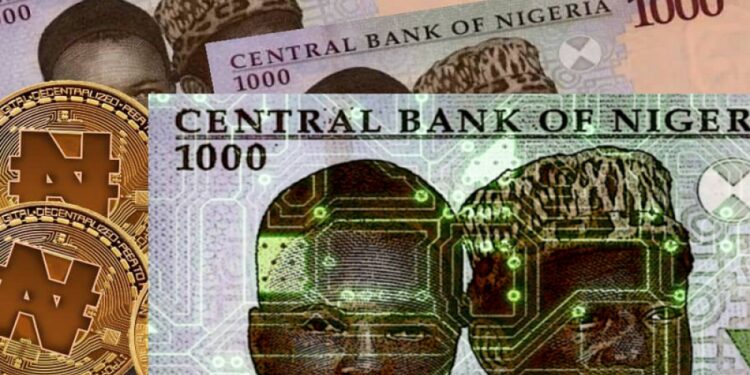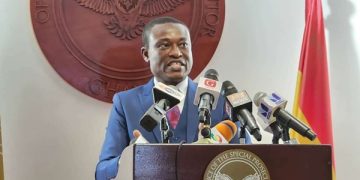e-Naira: Central Bank of Nigeria’s trump card to financial exclusion
After 61 years, a nation with approximately 201 million people according to the world bank, may have finally found a solution to its financial exclusion problem, an issue that the nation has grappled with for many years.
The world bank defines financial inclusion as individuals and businesses having, “access to useful and affordable financial products and services that meet their needs – transactions, payments, savings, credit and insurance – delivered in a responsible and sustainable way.”
In August 2013 documents released by the Central Bank of Nigeria (CBN) acknowledged the financial inclusion gap in the country stating, “Financial exclusion has manifested prominently in Nigeria with the bulk of the money in the economy staying outside the banking system. The issue of financial exclusion has therefore been a major economic challenge that has received the attention of the various governments over the past four decades.”
The CBN’s many efforts at achieving financial inclusion
Before this document was released, the CBN in 2012, through its National Financial Inclusion Strategy (NFIS), set a target to ensure 80% of Nigeria’s adult population have access to financial services by the end of 2020. Data from the Central Intelligence Agency (CIA) reveals that Nigeria’s adult population makes up 58.3% of the total population. This means approximately 117 million Nigerians make up the total adult population of the country.
To meet the NFIS target, it would mean that over 94 million adult Nigerians must have access to financial services but unfortunately, this is not the case. In 2018, before the 2020 target, the CBN released a circular, explaining that the country was not meeting any of its financial inclusion targets contained in the NFIS released in 2012.
Not only was the country not meeting its targets, but it was also declining in growth. This was caused by a number of factors which includes, high poverty rate, cost of account maintenance, lack of trust in financial service providers and proximity to service points.
The CBN had made many attempts at improving the financial exclusion situation in the country but all to no avail. For instance, in 2018, the CBN proposed Payment Service Banks (PSB) which are meant to strengthen the country’s financial inclusion drive by leveraging mobile and digital channels. Unfortunately, after more than two years of the release, not much has changed.
Data from the Nigeria Inter-Bank Settlement System Plc (NIBSS) reveals that Nigeria has 47 million Bank Verification Numbers (BVN). The BVN is an 11-digit number that acts as universal ID for bank holders in Nigeria. Going by the total adult population of Nigeria which stands at 117 million, this means that only approximately 40% of the country’s adult population have bank accounts.
In 2019, CBN set a new financial inclusion target geared at giving 95% of Nigeria’s adult population access to financial services by 2024. This may be perceived as an unattainable target, especially when looking at the current state of the economy where people are trying to preserve their earnings by buying foreign currencies and instead of keeping these foreign currencies in the bank, many are scared that the CBN would convert these said foreign currencies to naira.
How does the e-Naira factor in?
In a nutshell, the CBN’s lofty financial inclusion target can be achieved through the launch of its new Central Bank Digital Currency (CBDC), the e-Naira. Managed effectively, the e-Naira could become the CBN’s trump card to financial exclusion.
Although the apex bank has postponed the launch of the e-Naira twice so far, first on the country’s Independence Day and the second, on the 4th of October, we can still draw some facts from guidelines and information released so far by Nigeria’s financial watchdog.
So far, what is really captivating about the e-Naira is that as a minimum requirement. Individuals can have access to financial services with just their phone numbers. According to reports, there are 3 levels to the government issued wallet and to have access to the first level, all the information required to have access includes; passport photograph, name, birth date, place of birth, phone number, address and National Identity Number (NIN).
These requirements are pretty easy to obtain and ultimately, by making the process of financial inclusion much simpler, a state of mass adoption is created thereby making the financial inclusion process streamlined and less complicated.
Although there are transaction limits to what the first level can allow which is a fifty-thousand-naira limit on send and receive transaction with a cumulative limit of three hundred thousand naira fixed each day, it is still a very effective approach to aid financial inclusion.
The move to launch a CBDC has been praised by many, including the African Centre for Justice and Human Rights (ACJHR). According to a statement made by ACJHR’s Acting Director of Operations and Programs Development, Bridget Akpeh, “This decision by the CBN led by its Governor, Godwin Emefiele, is the right decision at this digital age. The introduction of e-Naira will no doubt place Nigeria’s economy in its deserved place in the economies of the world.”
On the flip side…
Although many have praised the move as a step in the right direction, many analysts still wonder if there is any need for the CBDC. Many are asking why the CBN will expense so much to launch a CBDC when the country has one of the most sophisticated banking systems in the world.
Asides from the technological strength of the Nigerian banking system, the average Nigerian transaction involves the use of a variety of payment methods which includes; Point of Sale (POS) machine, Online Bank Transfer, USSD Code enabled transfers and fiat currency, and these methods are all instant in cash finality.
The average Nigerian retailer accepts at least one of these payment methods when a transaction is about to take place. Instead of spending valuable resources on launching a CBDC, the POS systems and online transfers can be encouraged through targeted campaigns, just like the cashless policy campaign in 2012.
Although the e-Naira makes it easy to access the financial systems through a smartphone, the real question is how many people in Nigeria, a country termed the poverty capital of the world by the Borgen Magazine, have smartphones?
According to Pew Research Center, only 32% in Nigeria use smartphones. Nigeria’s population is 201 million people and this represents approximately 64 million people. Another report from the Guardian states that Nigeria has roughly 170 million mobile phone users based on subscriptions but only about 25 to 40 million users have smartphones which represent only between 10-20% of the population.
Olumide Adesina, a writer for CoinDesk stated, “Some economists also believe the CBN can spend in deficit and shift funds directly to citizens without worrying about the national debt in times of economic hardship. In other words, a CBDC could present an obvious inflation risk.”
Bottomline
With all being said, as much as this innovation is good, many are wondering whether or not Nigeria is ready to operate in a digital economy especially with the high poverty and illiteracy rates plaguing the nation. Will the e-Naira actually help combat financial exclusion? Or will it be one of many failed attempts at it? The answer to this lies in the future.








